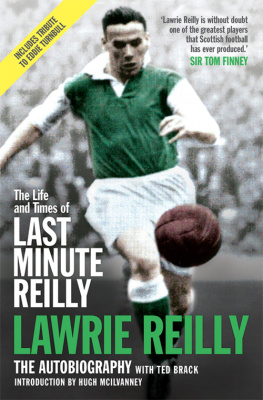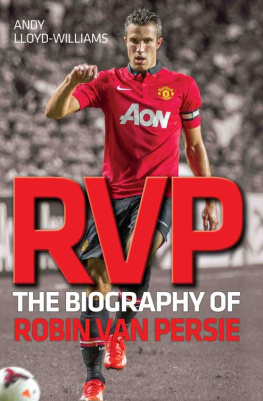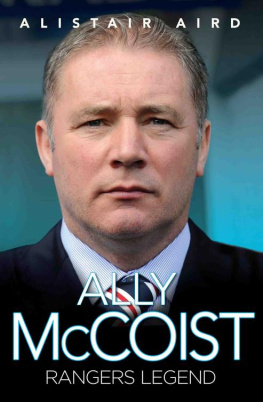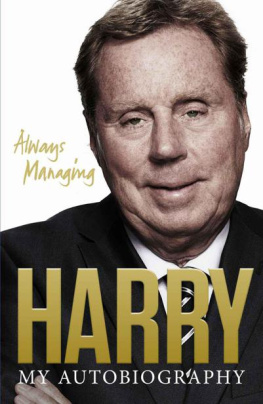First published by Pitch Publishing, 2016
Pitch Publishing
A2 Yeoman Gate
Yeoman Way
Durrington
BN13 3QZ
www.pitchpublishing.co.uk
Neil Vacher and Ted MacDougall, 2016
All rights reserved under International and Pan-American Copyright Conventions. By payment of the required fees, you have been granted the non-exclusive, non-transferable right to access and read the text of this e-book on-screen. No part of this text may be reproduced, transmitted, downloaded, decompiled, reverse-engineered, or stored in or introduced into any information storage and retrieval system, in any form or by any means, whether electronic or mechanical, now known or hereinafter invented, without the express written permission of the Publisher.
A CIP catalogue record is available for this book from the British Library
Print ISBN 978-1-78531-201-4
eBook ISBN 978-1-78531-258-8
--
Ebook Conversion by www.eBookPartnership.com
Contents
Foreword
by Lawrie McMenemy MBE LLD MBA
L OOKING back on a fairly long career in football, certain events, games and players stand out. Ted MacDougall falls into that category.
Southampton had just won an extremely hard League Cup tie, the crowd were delighted, the dressing room was buzzing suddenly a boot flew across the room and missed a young players head by inches.
It was thrown by Ted, who followed it up with a lecture to the youngster, telling the lad how he should have passed to him in the 70th minute instead of trying a shot himself.
Ted had an in-built determination to do well and win, probably to show those who had turned him down earlier in his career, similar to other legends such as Kevin Keegan and Alan Ball. All three climbed the ladder to the top level for club and country.
In this book, Ted talks about his highly successful on-field partnership with Phil Boyer at four different clubs. We also hear how he became one of the first British players to help launch top-level soccer in Canada and the USA and how he continued to be involved there when he finally hung up his boots.
He still shows the same determination, work rate and skill which took him to the top. Fascinating.
Acknowledgements
I WOULD like to thank everyone who has helped and encouraged me in the preparation of this book, and especially the following: Ted MacDougall, for taking me seriously and sticking with me! Lawrie McMenemy, for providing the foreword.
The Bournemouth Daily Echo and the Southern Daily Echo for providing many of the illustrations.
Louise John; Ian, Paul and Jacqui Vacher; Neil Wyatt; John Harriss; Max Fitzgerald and Matt Payne at AFC Bournemouth; Neil Perrott at the Bournemouth Daily Echo; Simon Carter and Jez Gale at the Southern Daily Echo.
Paul and Jane Camillin at Pitch Publishing thank you for showing faith in a first-time author, and Duncan Olner at Olner Design for his patience!
And last but not least, my late Mum and Dad for instilling in me the joys of following the Cherries.
Neil Vacher
1
Finding His Feet
E DWARD John MacDougall was born in Inverness, Scotland on 8 January 1947, the only child of Alexander and Kathleen MacDougall. Sometimes referred to as the Capital of the Highlands and with a population of around 28,000 at the time, Inverness lay close to where Bonnie Prince Charlie fought the final confrontation of the Jacobite Rising in 1746, and in more peaceful times, had established itself as a mecca for bagpipe enthusiasts. When young Edward was making his first appearance in life, it was also home to three Highland League football clubs, as Ted himself recalls, We lived just across the road from Grant Street Park, the ground of Inverness Clachnacuddin, for whom my father played as a goalkeeper. My mother used to say that I had football boots on from about three years of age, so I certainly developed a love for the game very early on in my life! Later on, I remember my father making me practise wearing a slipper on my right foot to encourage me to use my left. Thats why I was always quite useful with my left foot!
Teds father, a slater and tiler by profession and known to his friends as Eck, was in fact a goalkeeper of some distinction locally, says Ted, The Lillywhites, as Clachnacuddin were known because of their white strip, were semi-professional and as a young boy I used to go with my Dad to watch them train twice a week, and then go to their match on the Saturday. I enjoyed watching my Dad play but I never thought of becoming a goalkeeper myself. The other teams in Inverness at that time were Caledonian and Inverness Thistle. Of course they eventually amalgamated to become Inverness Caledonian Thistle in 1994 and have gone on to reach the Scottish Premier League.
I attended Merkinch Junior School and played my first matches for the school side there before I went on to Inverness High School, where I became centre-half and captain. We played on Saturday mornings but that wasnt enough for me, so in the afternoon I played on the right-wing for the local Boys Brigade! I remember once travelling with the school team to play a match in Inverary, which is near Aberdeen, and we had to go by bus which was a really big deal at the time! Inverness was a beautiful place to grow up in but it was quite isolated in those days, the road network was very poor and to get from Inverness to Glasgow for example would have taken around five hours.
The first time I hit the ball into the net as a lad I thought it was fantastic, a different feeling altogether to scoring without one and of course we didnt have to go and fetch the ball! It was great when I first played under lights as well instead of a lamp post!
Apart from following the local sides, I also became fanatical about Manchester United and once, as a treat, Mum and Dad took me to watch a game at Old Trafford. If going to Inverary was quite something then you can imagine how I felt about this! It was about a 1,000-mile round trip to Manchester and back, and for a young lad coming from a small town like Inverness as it was then, I thought the place was phenomenal, just out of this world!
However, a big change in my life occurred when I was 12 years old. My Dad had worked on the railways for many years, but as more and more of them were being closed down things were becoming increasingly difficult for him. He managed to find work in Widnes, Cheshire which was an industrial town on the northern bank of the River Mersey, so Mum and I moved down there with him. Chemical plants dominated the town and you smelt Widnes before you saw it. It was quite a contrast to the clean air that we had been used to in Scotland but my parents knew that moving there would also give me a better chance of having a football career.
Unfortunately for Ted however, the major sporting interest in Widnes centred almost exclusively around the towns rugby league club, I attended Fairfield High School, which, no surprises, was of course a rugby playing school! It was all about rugby, the only lads who played football apart from me were those that were not very athletic types, or wore glasses or had one of those pink NHS eyepatches! We had the traditional house system and when it came to the inter-house football competition I represented York house and one year scored something like 45 goals in three games! My schoolmates gave me the nickname Jock a lot of thought must have gone into that and I became a bit of a celebrity, not because I was particularly good but because I was one of the few boys who played football rather than rugby league.














